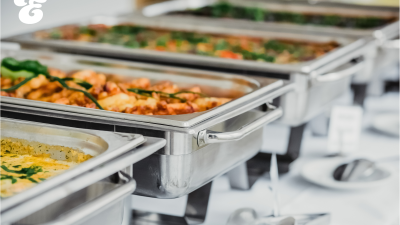Event Vendor Hiring in Kenya: Essential Questions Every Planner Must Ask
Planning an event in Kenya requires careful consideration when selecting vendors, whether you’re organizing a high-end wedding in Karen, a corporate conference in Westlands, or a cultural celebration in Mombasa. With the growing events industry in major cities like Nairobi, Kisumu, and Nakuru, finding the right vendor can make or break your event’s success.
This comprehensive guide will help event planners in Kenya ask the right questions during vendor interviews and selection. These essential questions ensure you’re making informed decisions while working with local service providers, from caterers to decorators, sound system providers to photographers.
1. What is Your Experience with Similar Events in Kenya?
When hiring vendors in Kenya, their local experience matters significantly. A vendor who has worked extensively in your chosen venue or area will understand unique challenges like:
- Navigation through Nairobi’s traffic patterns during peak hours
- Handling weather conditions during different seasons (like the long rains from March to May)
- Managing power backup systems during unexpected outages
- Working with local county regulations and permits
- Understanding cultural considerations for different types of events
Ask for specific examples of similar events they’ve handled in your chosen location. A vendor who has worked multiple times at venues like Trademark Hotel, Safari Park, or Windsor Golf Club will be better prepared for location-specific challenges.
2. Can You Provide a Detailed Breakdown of Your Pricing in KES?
Transparent pricing is crucial when planning events in Kenya. Your vendor should provide:
- A clear breakdown of costs in Kenya Shillings (KES)
- Details about payment terms and accepted methods (M-Pesa, bank transfer, etc.)
- Information about any additional charges like:
- Transport costs (especially important for events outside Nairobi CBD)
- Setup and breakdown fees
- Staff overtime rates
- Emergency backup equipment costs
Red flags include vendors who:
- Are reluctant to provide written quotes
- Have hidden charges not mentioned in initial discussions
- Don’t accept standard payment methods common in Kenya
Remember to compare these rates with market averages in your specific region, as prices can vary significantly between different parts of Kenya.
3. What Insurance Coverage Do You Have for Events?
Insurance is a critical consideration for event planning in Kenya, yet it’s often overlooked. Professional vendors should have:
- Public liability insurance covering events
- Professional indemnity insurance
- Equipment insurance
- Worker’s compensation for their staff
This is particularly important for high-profile events at premium venues like Villa Rosa Kempinski, Radisson Blu, or The Boma Hotel, where venue management often requires proof of insurance from all vendors.
Ask specific questions about:
- Insurance certificate validity
- Coverage limits for different types of incidents
- How claims are handled in case of emergencies
- Whether their insurance covers outdoor events (crucial for popular garden venues in Karura Forest or Botanical Gardens)
4. What is Your Contingency Plan for Common Challenges in Kenya?
Every experienced event vendor in Kenya should have solid backup plans for common local challenges. Discuss their strategies for:
Weather-Related Issues:
- Backup plans for outdoor events during unexpected rains (especially crucial during the masika season)
- Alternative arrangements for extreme heat, particularly for daytime events in areas like Mombasa or Malindi
Technical Challenges:
- Power backup solutions during blackouts (common in areas like Westlands and Kilimani)
- Alternative equipment in case of technical failures
- Backup transport options during traffic emergencies (especially important during rush hour in CBD)
Staffing Solutions:
- Availability of backup team members
- Response time for emergency staff deployment from different parts of the city
- Staff transport arrangements for early morning or late-night events
A professional vendor should provide detailed contingency plans specific to your event location and type. For instance, a vendor working in Karen should have different backup strategies compared to one operating in Eastlands or Industrial Area.
5. Can You Share Your Portfolio and References from Recent Kenyan Events?
Any reputable vendor in Kenya should maintain a comprehensive portfolio of their work. Request to see:
Recent Event Documentation:
- Photos and videos from events within the last 6-12 months
- Examples specifically from your type of event (corporate, wedding, ruracio, etc.)
- Work done at similar venues or locations
- Events with comparable budgets and scale
Local References:
- Contact information for at least 3-5 recent clients
- References from well-known event planners in Kenya
- Testimonials from events at popular venues like Nairobi National Museum, Pride Inn, or The Panari
- Feedback from different types of events (both traditional and modern celebrations)
Pay special attention to reviews mentioning:
- Punctuality (crucial in managing “Kenyan time” expectations)
- Problem-solving abilities during unexpected situations
- Quality of service delivery
- Value for money in the Kenyan market
6. How Do You Handle Event Day Communication and Coordination?
Clear communication is essential for successful events in Kenya. Discuss:
On-Site Communication:
- Primary point of contact during the event
- Backup contact person in case of emergencies
- Preferred communication methods (WhatsApp, calls, etc.)
- Response time expectations during setup and event
Team Coordination:
- Number of team members present during the event
- Team arrival and setup timelines
- Coordination with other vendors (especially important for large events)
- Protocol for communicating with venue management
Specific considerations should include:
- Language preferences (English, Swahili, or local languages if needed)
- Communication plans during network congestion (common during large events)
- Protocol for urgent situation updates
- Coordination during multi-location events (like traditional weddings with multiple venues)
7. What Are Your Setup and Breakdown Requirements for Kenyan Venues?
Understanding the logistics of setup and breakdown is crucial for smooth event execution in Kenya. Discuss:
Venue Access Requirements:
- Minimum setup time needed (especially important for venues like KICC or Sarit Centre)
- Early access requirements for different venues
- Loading dock access and parking arrangements
- Security clearance needs for sensitive venues (like hotels and government facilities)
Setup Logistics:
- Transport arrangements through busy areas (CBD, Westlands, Upperhill)
- Equipment offloading process
- Power and water requirements
- Space needed for setup and storage
- Handling of setup during adverse weather conditions
Additional Considerations:
- County permit requirements for outdoor setups
- Noise regulation compliance in residential areas like Lavington or Kilimani
- Coordination with venue security teams
- Clean-up protocols and waste management
8. How Can Your Services Be Customized for Different Kenyan Events?
Event customization is essential in Kenya’s diverse cultural landscape. Explore:
Cultural Adaptability:
- Experience with different cultural ceremonies (Kikuyu, Luo, Kalenjin traditions)
- Ability to blend modern and traditional elements
- Understanding of cultural protocols and sensitivities
- Adaptation to different religious requirements (Islamic, Christian, Hindu events)
Service Flexibility:
- Options for different budget levels
- Package customization possibilities
- Seasonal adjustments (December holidays, wedding season)
- Scale-up/down capabilities
Location-Specific Customization:
- Adaptation to different venues (beach events in Diani, garden events in Naivasha)
- Adjustments for urban vs. rural settings
- Options for destination events within Kenya
- Solutions for different climate zones (coast vs. highlands)
9. What Are Your Payment Terms and Cancellation Policies?
Understanding financial arrangements is crucial for event planning in Kenya. Clarify:
Payment Structure:
- Deposit requirements and timing
- Payment schedules aligned with Kenyan banking hours
- Accepted payment methods (M-Pesa, bank transfers, mobile banking)
- Currency handling (especially for international corporate events)
Cancellation and Refund Policies:
- Notice periods required for cancellations
- Force majeure clauses covering situations like political events
- Refund percentages at different cancellation stages
- Rescheduling policies and associated fees
Documentation:
- Written contracts in clear, legally sound language
- Receipting process for all payments
- Terms and conditions specific to Kenyan business law
- Tax compliance and ETR receipt provision
10. How Do You Collaborate with Other Kenyan Vendors?
Vendor collaboration can make or break an event. Discuss:
Coordination Experience:
- Previous partnerships with other local vendors
- Experience at major venues requiring multiple vendors
- Handling of multi-vendor setup schedules
- Resolution of inter-vendor conflicts
Professional Network:
- Recommendations for complementary services
- Preferred vendor partnerships
- Experience with different event management companies
- Industry association memberships (Kenya Association of Event Planners, etc.)
Conclusion: Making the Right Choice for Your Kenyan Event
Selecting the right vendor for your event in Kenya requires thorough vetting and careful consideration. These ten questions serve as your essential guide to making an informed decision, whether you’re planning:
- A destination wedding in Naivasha or Mombasa
- A corporate conference in Nairobi’s business district
- A traditional ceremony in rural Kenya
- A high-profile social event at a luxury hotel
Remember that the Kenyan events industry has its unique characteristics and challenges. Take time to:
- Verify vendor credentials and references
- Understand all terms and conditions thoroughly
- Consider local factors like weather, traffic, and cultural requirements
- Plan for contingencies specific to your event location
By asking these critical questions, you’re better positioned to find vendors who can deliver exceptional service while navigating the specific demands of Kenya’s diverse event landscape. Keep this guide handy during your vendor interviews, and don’t hesitate to ask follow-up questions based on your specific event needs.
Want to stay updated on more event planning tips and vendor selection advice in Kenya? Subscribe to our newsletter for regular insights and updates tailored to the Kenyan events industry.



